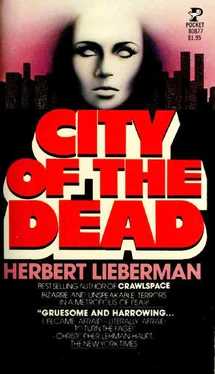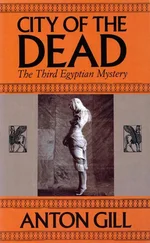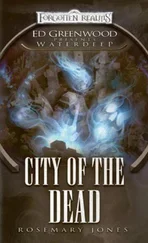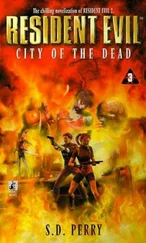“That’s all right.” The girl suffers on with histrionic bravery. “You were sincerely concerned. And I’m touched. Now come on home with Heather, honey. Ten dollars. A sawbuck. Rock-bottom. Special to you ’cause I like you. But don’t let the word get around. Come on.” She tugs at his sleeve. “Let Heather make you happy. Show you heaven.”
Konig gazes at her for a long moment, sighs wearily and laughs. “Okay, let’s go.”
For a while she gazes at him dumbly, not quite believing. Then comprehension comes upon her. Her face lights; her eyes dazzle. “You really mean it?”
“Absolutely. Why not? Do me good.”
“Wait here.” She bounces up.
“Where you going?”
“Little girls’ room—for a tinkle.” She scurries off, then scurries back. “You won’t run off?”
“Course not. I’ll be right here.” Konig removes several bills from a billfold. “Hurry up.”
She turns, starts off, then turns again, smiling. “You won’t regret it.”
“I know—I know,” he growls. “Hurry up.”
Konig counts off a number of bills, leaves them atop the check, all the while eying the small white vinyl wallet the girl has left there trustingly with her cards and pencils. In a moment he has the wallet and is riffling through it, flicking past a wad of old photos stuck behind dirty yellow plastic windows—pictures of a raddled old frame house with a windmill in the front yard, a fat dozy mongrel dog with sweet eyes, one of Heather in a bathing suit, then one behind the wheel of an old Plymouth convertible with a ruined top, then several shots of Heather with an assortment of young men, all of them of the greasy-frisette, tattooed-bicep variety. Then suddenly he finds what he’s looking for—a driver’s license issued in the name of Molly Sully, Box 382, RFD, Tulsa, Oklahoma. Date of birth: 3/5/58.
He tucks the license carefully back into the plastic sleeve and returns the wallet to its place.
Then suddenly Heather Harwell, nee Molly Sully, is there again, smiling, face scrubbed, mouth red with a fresh coating of lipstick somewhat untidily applied. “Okay, Poppy—let’s fly.”
8:40 p.m. A Third-Floor Loft in a Warehouse on Varick Street.
Francis Xavier Haggard stands cross-armed and pensive before a high, crumbling plaster wall, studying the curious motto scrawled there.
The letters, sprayed on graffiti-style in tall, wavery blood-red letters, cover the full length of the wall and run from nearly floor to ceiling. A spray can of Red Devil paint lies on its side, empty and discarded, at the foot of the wall beneath the motto.
THE DAY OF THE MUFFLED OAR IS COMING
Haggard’s pebbly blue eyes fasten thoughtfully on the words, trying to decipher their cryptic, somewhat portentous message. He appears to be a man deep in reverie.
Behind him two young people hover silently in an open doorway. One, a short, stocky, powerfully built Greek man by the name of Tsacrios, mid-twenties, darkly handsome, with tempestuous curly hair and sullen eyes; the other, a lithesome black girl called Cynthia, with the bone structure and lineaments of a fashion model. Leaning against the jamb, she wears a man’s silk paisley robe cinctured tightly around the waist with a tasseled sash, and, quite apparent, nothing else beneath. Their faces convey a mixture of distrust and fear.
The detective turns from the wall, then commences his slow leonine prowl through the awful chaos of the loft. The place gives the impression of a violent ransacking, drawers ripped out, feminine apparel strewn across the floor, broken furniture, shattered lamps, ceramic crockery and ashtrays hurled violently against the wall, in some places punctured plaster.
There are two small army cots where people have recently lain. Onto these the contents of dozens of tubes of vibrantly colored acrylic paints have been squirted, dripped, and oozed, creating on the tumbled sheets and blankets a violent lunatic pattern. Mingled into this frenzy are the remains of dozens of fine horsehair brushes, all shattered and broken, then stretchers and canvas, battered and slashed irretrievably.
Haggard moves farther into the loft, stooping beneath joists and pipes beaded with cold dripping water, ducking to avoid naked hanging light bulbs. His prowl moves him toward the gloomy shadows in the rear of the loft. Here he finds curtained off, without the grace of a door, a dismal but clean little privy revealing someone’s recent pathetic efforts to beautify it by attempting to cover up a soot-blackened window with a pretty bamboo shade.
Outside of that is a tiny, makeshift alcove containing a small electric stove and a zinc-plated sink with a wood plank shelf above it lined with jars of instant coffee, peanut butter, jam, powdered milk, a soap cleanser, Ritz crackers, and two biscuit tins. Beneath the sink lies the crumpled, maggoty body of a small black-and-white mongrel dog, muzzle sticky with blood.
Stooping and weaving his way beneath joists and pipes, Haggard completes his slow circumambulation of the loft, arriving once more at the heap of nameless debris in the center of the loft. With the two young people still watching him from the doorway, he pokes with the tip of his shoe through the wreckage, a graveyard junk heap of paintings, dozens of them, in shreds and tatters, as if the stretchers had been smashed brutally and each canvas very deliberately punched through, then ground under heel.
The violence in evidence there has a maniacal look about it. The devastation is total, absolute. But it is still possible to describe the shape and content of many of the paintings, all of which appear to have a distinctly nautical motif—seas and skies, both tranquil and stormy, beaches, sand dunes, driftwood, marine flora, storm-weathered shacks, nets, dead fish washed up on the shore, the wrecked hulls of old beached scows, barnacle-encrusted, shattered, peeling, tumid bellies turned upward toward the sun.
One there in all this frenzied heap catches Haggard’s eye. A lone figure at twilight, a man in shorts and skivvy, standing hip-high in boiling surf, caught just at that moment when his great surf pole, brought back as far as it will go, quivers in the space of that second just before it will be hurled forward like a lash. There’s something in that lone figure on the beach consigned to what appears a perpetual twilight, something about the powerful shoulders, that intransigent, ramrod carriage with the sea wind beating inland against him, fluttering his garments, something in that figure that the detective recognizes. The bottom left-hand corner of the painting is signed in a tiny, unassertive orthography—Emily Winslow.
“I hope you get the bastard.”
A voice shatters Haggard’s inward ruminations. He turns to the stocky young Greek in the open doorway with the pretty black girl hovering just behind him.
“When you get him I’d appreciate your letting me know. Unofficially, of course, just before you pick him up. I’d like to have a few moments alone with Warren. See the poor little mutt back there?”
“Yeah. I saw him.” Haggard gazes ruefully at the young man with the round, cherubic face of a Quattrocento prince. Pulling the crumpled DD13 out of his inside pocket he walks toward him. “You’re sure now this is the girl we’re talking about?”
The two young people glance at the photograph on the police form.
“That’s her all right,” says Tsacrios. “Looks a little younger there. But that’s her all right—isn’t it, Cyn?”
“That’s her. No mistake. We never called her Lauren though. We called her Emily.”
“Emily Winslow?” Haggard stares down at the girl. “That’s right,” the girl replies, a little rattled by the intensity of his gaze.
Читать дальше












